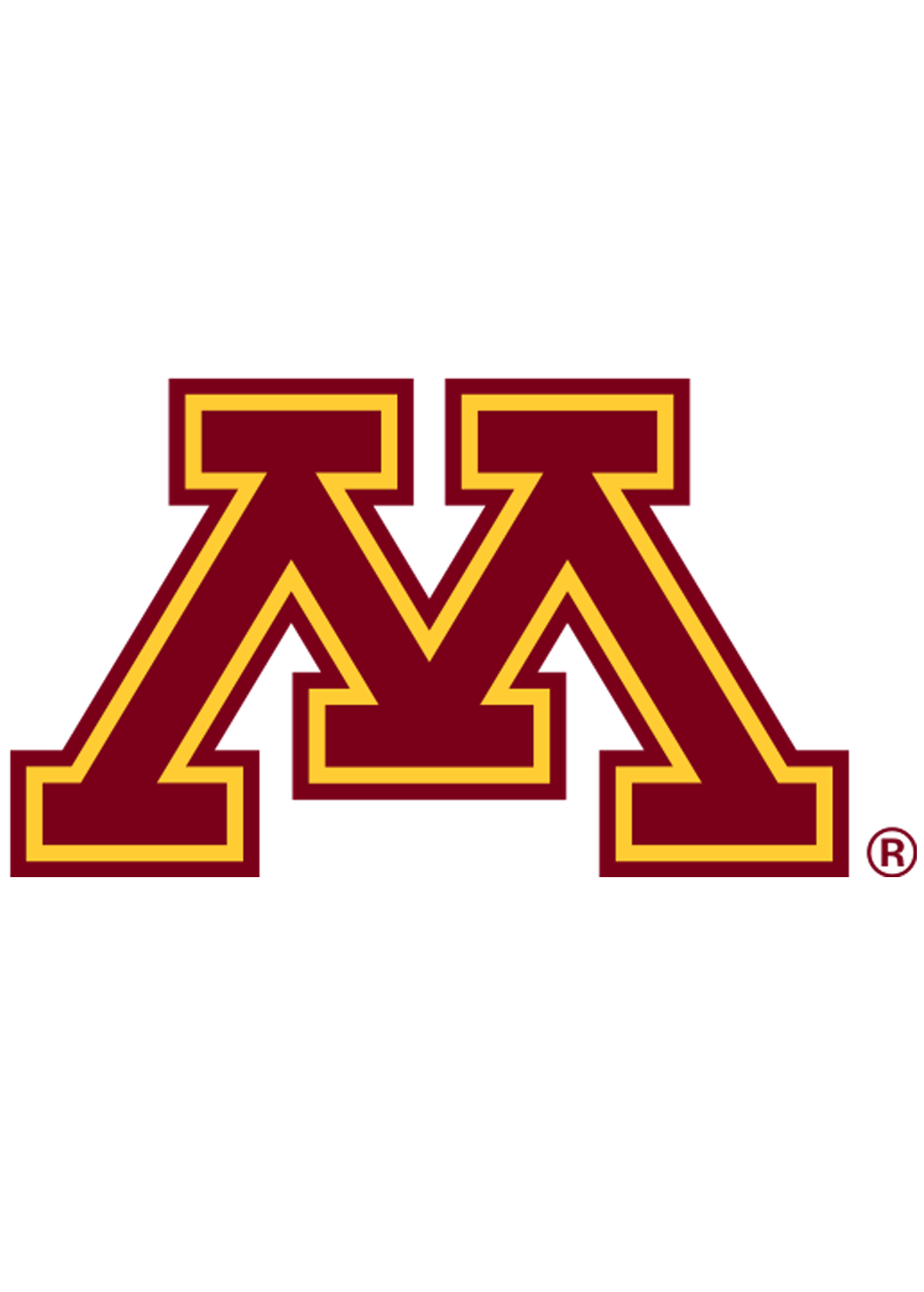Those who graduate from a sports management program can become qualified for positions such as athletic director, sports agent, and sports marketing manager. According to the Bureau of Labor Statistics, the median annual pay for event planners is $56,920, while athletic trainers make $57,930. Marketing managers have an average yearly salary of $156,580.
Students can earn an online sports management degree at the associate, bachelor’s, and master’s levels. According to the National Center for Education Statistics, the average annual tuition for undergraduate programs is $7,998 at public universities and $34,923 at private schools. For graduate programs, the average annual tuition is $12,596 at public institutions and $28,017 at private colleges.
It typically takes full-time students four years to complete a bachelor’s degree and two to complete an associate or master’s degree.
Why Trust Us
The Intelligent.com Higher Education Team is dedicated to providing students with independent, equitable school and program rankings and well-researched resources. Our expert-driven articles cover topics related to online colleges and programs, paying for school, and career outlooks. We use data from the U.S. Department of Education’s College Scorecard, the National Center for Education Statistics, and other reputable educational and professional organizations. Our academic advisory team reviews content and verifies accuracy throughout the year for the most current information. Partnerships do not influence rankings or editorial decisions.
- Analyzed over 2,000 national, accredited, and nonprofit colleges and universities
- 800+ rankings pages are reviewed and updated yearly
- Content is informed by reputable sources, surveys, and interviews with academic advisors and other experts
- Over 100 data points are reviewed for accuracy and quality throughout the year, including sources
How we rank schools
Our list features the best online Sports Management degree programs at top colleges nationwide. Each school featured is a nonprofit, accredited institution — either public or private — with a high standard of academic quality for post-secondary institutions.
We evaluated each school’s program on tuition costs, admission, retention and graduation rates, faculty, reputation, and the student resources provided for online students. We collected data from trusted sources like the National Center for Education Statistics, individual school and program websites, school admissions counselors, and other data sources. Then, we calculated the Intelligent Score on a scale of 0 to 100 based on the following criterion:
Academic Quality:
- Admission rate versus enrollment rate
- Retention rate of students who return after year one
- Accreditation status (regional and programmatic)
- Nonprofit status, both private and public institutions
Graduation Rate
- Overall graduation rate
- Total number of currently enrolled students, including diversity metrics
- Student-to-faculty ratio
Cost and ROI
- In-state and out-of-state per-credit tuition rates and fees
- Required credits to graduate
- Earning potential after graduation
- Availability of federal student loans, scholarships, and other financial aid options
Student Resources
- Available student services for online-only and hybrid programs
- On-campus amenities like tutoring centers and the number of libraries
Read more about our ranking methodology.
Best 31 Accredited Online Sports Management Degree Programs
FiltersInstitution Type
Status
- Intelligent Score
- Alphabetically By University Name
- Acceptance Rate
- Enrollment
- In-state Graduate Tuition
- Out-of-state Graduate Tuition
- In-state Undergraduate Tuition
- Out-of-state Undergraduate Tuition

Southern New Hampshire University
Intelligent Score: 99.59In-state: $9,600
Out-of-state: $9,600
In-state: $18,810
Out-of-state: $18,810
SAT: N/A
ACT: N/A
$330
Online
Accreditation Council for Business Schools and Programs
120

McKendree University
Intelligent Score: 99.01In-state: $31,100
Out-of-state: $31,100
In-state: $9,324
Out-of-state: $9,324
SAT: 871-1277
ACT: 18-28
$410
Online
International Accreditation Council for Business Education
120

Shorter University
Intelligent Score: 98.32In-state: $22,380
Out-of-state: $22,380
In-state: $12,600
Out-of-state: $12,600
SAT: 950-1160
ACT: 18-24
$386
Online
Commission on Sport Management Accreditation
120

United States Sports Academy
Intelligent Score: 98.09In-state: $38,484
Out-of-state: $38,484
In-state: $20,520
Out-of-state: $20,520
SAT: 1000 or higher
ACT: 20 or higher
$525
Online, On-Campus
Accreditation Council for Business Schools and Programs
120

University of Florida
Intelligent Score: 97.25In-state: $4,477
Out-of-state: $25,694
In-state: $10,770
Out-of-state: $10,770
SAT: 1290-1460
ACT: 29-33
In-State: $129
Out-of-State: $552
Online
Southern Association of Colleges and Schools Commission on Colleges
120

Troy University
Intelligent Score: 96.06In-state: $7,800
Out-of-state: $15,600
In-state: $7,650
Out-of-state: $7,650
SAT: 935-1105
ACT: 18-25
$408
Online, On-Campus
Commission on Sport Management Accreditation
120

Maryville University
Intelligent Score: 95.82In-state: $24,766
Out-of-state: $24,766
In-state: $14,346
Out-of-state: $14,346
SAT: N/A
ACT: N/A
$540
Online
Higher Learning Commission
128

University of Iowa
Intelligent Score: 95.68In-state: $8,073
Out-of-state: $30,036
In-state: $10,079
Out-of-state: $10,079
SAT: 1110-1310
ACT: 22-29
Resident: $376
Non-Resident: $1,290
Online
Higher Learning Commission
120

University of Louisville
Intelligent Score: 94.39In-state: $11,966
Out-of-state: $28,312
In-state: $13,260
Out-of-state: $13,260
SAT: 1050-1270
ACT: 21-28
$527
Online
Southern Association of Colleges and Schools Commission on Colleges
120

University of Minnesota
Intelligent Score: 93.55In-state: $13,318
Out-of-state: $31,616
In-state: $17,580
Out-of-state: $17,580
SAT: 1240-1460
ACT: 25-31
$441
Online
Higher Learning Commission
120

Florida International University
Intelligent Score: 93.03In-state: $4,721
Out-of-state: $16,529
In-state: $8,912
Out-of-state: $8,912
SAT: 1110-1260
ACT: 23-29
In-State: $235
Out-of-State: $648
Online
Southern Association of Colleges and Schools Commission on Colleges
120

Davenport University
Intelligent Score: 91.85In-state: $19,320
Out-of-state: $19,320
In-state: $15,696
Out-of-state: $15,696
SAT: N/A
ACT: N/A
Resident: $974
Non-Resident: $658
Online, On-Campus
Commission on Sport Management Accreditation
120

University of Memphis
Intelligent Score: 91.81In-state: $8,208
Out-of-state: $12,048
In-state: $9,216
Out-of-state: $9,216
SAT: 990-1200
ACT: 19-26
$431
Online, On-Campus
Southern Association of Colleges and Schools Commission on Colleges
120

Columbia College
Intelligent Score: 90.93In-state: $17,791
Out-of-state: $17,791
In-state: $10,671
Out-of-state: $10,671
SAT: 820-1050
ACT: 17-20
$375
Online, On-Campus
Higher Learning Commission
120

Eastern Kentucky University
Intelligent Score: 90.44In-state: $9,266
Out-of-state: $19,338
In-state: $9,900
Out-of-state: $9,900
SAT: 950-1170
ACT: 19-25
$434
Online
Southern Association of Colleges and Schools Commission on Colleges
120

Mercy University
Intelligent Score: 89.52In-state: $40,712
Out-of-state: $40,712
In-state: $47,865
Out-of-state: $47,865
SAT: 1020-1230
ACT: 23-27
$884
Online, On-Campus
Middle States Commission on Higher Education
120

CSP Global
Intelligent Score: 88.63In-state: $32,660
Out-of-state: $32,660
In-state: $9,090
Out-of-state: $9,090
SAT: 990-1180
ACT: 19-25
$420
Online
Higher Learning Commission
120

Wilmington University
Intelligent Score: 88.44In-state: $11,430
Out-of-state: $11,430
In-state: $8,784
Out-of-state: $8,784
SAT: N/A
ACT: N/A
$409
Online
International Accreditation Council for Business Education
120
How to Choose an Online Sports Management Degree Program
Choose your area of study
Many online sports management degree programs will allow you to select a concentration and focus your studies on a particular niche in the sport industry, such as organizational and event management, facility management, sports finance, sports marketing, or sports administration.
If you already know what you would like to do after you graduate, look for sports management programs that closely match your career goals.
Research schools and programs
You should only apply to institutions that have been approved by a DOE-recognized regional accrediting organization, such as the New England Commission of Higher Education or Northwest Commission on Colleges and Universities. These organizations evaluate schools to ensure they provide students with a high-quality education. Those who attend a school that isn’t regionally accredited may be unable to access financial aid or transfer credits to another institution if needed.
Ideally, your sport management degree program will also be accredited by the Commission on Sport Management Accreditation (COSMA). This organization has particularly high standards for sports management faculty and curriculum.
As you’re researching sports management programs, take note of these factors:
- What is the cost of the program? Determine how much you can spend on your sport management degree. Then, when doing research, check the price of each program. If the tuition is more than that, you don’t need to spend much more time researching that sport management degree program. Even so, don’t settle on a program simply because it’s the least expensive one. The cheapest program isn’t necessarily the best. Weigh all of the factors to choose the sport management program that’s the right fit for you.
- Where is the school located? In addition to classroom education, colleges and universities have many other services, events, and activities on campus. These may include student clubs and organizations, job fairs, sporting events, gyms and fitness centers, the university library, and more. Distance learners may be eligible to take advantage of these on-campus services. Additionally, some online sports management degree programs are delivered in a hybrid format, where students can or must attend some in-person classes. Therefore, the school’s location may be essential when choosing a program.
To learn more about any schools that you’re interested in, you can visit the school’s website, contact an admissions counselor, follow the school on social media, or attend an in-person or virtual open house.
Prepare for tests and applications
Admissions requirements vary depending on the institution and the degree you plan to earn.
A high school diploma or GED is required for associate and bachelor’s programs, and all transcripts should be submitted. Most colleges and universities have a minimum GPA requirement, but it varies from school to school, and there are often exemptions or prerequisite courses you can take if your GPA is too low. Applicants to bachelor’s programs may also have to provide SAT or ACT scores.
Graduate programs require a bachelor’s degree from an accredited university. Applicants must typically submit transcripts, a resume, a personal statement or essay, and one or more letters of recommendation from people who know them professionally. GRE scores may also be needed, and previous professional experience in the field is sometimes required.
Some schools have specific deadlines for submitting applications, while others offer rolling admissions. Students should submit applications and supporting documents following these policies. Confirming any application procedures and requirements with an admissions counselor before applying is a good idea.
Select your program
Before making your final decision, review your needs and goals again. Do you plan to attend school full-time or part-time? Do you want your sport management degree program to be as online as possible, or are you fine with a hybrid program that has a fair amount of in-person requirements? Some programs offer asynchronous courses, which can be completed at your own pace, while others only offer synchronous courses, which involve remotely attending lectures and completing assignments at the same time as other students — which of these two online learning formats do you prefer? Your school should accommodate your scheduling needs and learning preferences.
Determine how you’ll pay for your degree
Contact the school’s financial aid office to learn more about your options for paying for your sport management program. They can provide information about institutional aid like scholarships, grants, fellowships, and resources for scholarships from external organizations. They can also help students complete the Free Application for Federal Student Aid (FAFSA), which schools use to determine eligibility for federal student loans.
Many schools offer payment plans that allow students to spread tuition payments out over the term, as well as military discounts for veterans and active-duty service members. Enrolling in a flexible online program can make it easier for students to work full- or part-time, which can help subsidize education costs. In many cases, employers may offer tuition assistance benefits to help students pay for school.
What Can You Expect from an Online Sports Management Degree Program?
A sports management program will prepare students to work in various areas at the professional, collegiate, and amateur athletics levels. Sports management courses typically cover topics such as event management, facility management, sports finance, sports marketing, sports administration, financial management, and problem solving skills.
Students often have the opportunity to meet team owners, sports writers, and agents; these professionals can help them determine which career they’d like to pursue. Some programs offer or require an internship or field experience with a sports organization, so find out what opportunities are available in your area.
Potential courses you’ll take in an online sports management degree program
- Sports marketing. This course teaches students the critical factors in using social media to market sports teams and events and how to develop their own marketing plans. Students examine case studies that help them identify critical marketing issues and solve marketing problems.
- Sports law. Students learn how various legal principles and precepts are applied to professional sports organizations. The course covers bargaining agreements, merchandising, television rights, endorsements, and stadium and arena contracts.
- Management and leadership in sports. In this course, students examine the critical role of leadership in sports organizations. Leadership theory is defined and studied from various perspectives, and students learn how to develop their leadership philosophies and understand the scope of their role within an organization.
- Management of sports and entertainment venues. Students in this course delve into the details of managing arenas, stadiums, and other facilities used for sports and entertainment events. Coursework covers contracts, selling events, running events, and more.
What Can I Do With a Sports Management Degree?
Career outlook
Sports management exists at the intersection of a variety of different fields, including athletics, entertainment, business, event planning, marketing, and more. Therefore, there are plenty of career options available for individuals with an online sport management degree.
Those most interested in athletics can go on to work as athletic directors or coaches, while individuals with a business mind may work as contract analysts or corporate partnership managers. Individuals with a sports management background can also manage sports venues, represent athletes as agents, or coordinate events related to professional sports teams. Some roles may require additional education, like a master’s degree in sports management.
- Coach or scout — Coaches teach amateur and professional athletes the skills they need to succeed at their sport, while scouts look for new players, evaluating their skills and likelihood for success at the amateur, college, or professional level.
- Median annual salary: $45,910
- Projected employment growth (through 2032): 9%
- New jobs projected: 38,400 per year
- Event planner — Coordinate events related to sports teams or venues, including games, promotions, and special events. Oversee budgets, scheduling, facilities, transportation, food, and more.
- Median annual salary: $56,920
- Projected employment growth (through 2032): 8%
- New jobs projected: 15,200 per year
- Marketing manager — Develop and implement plans to promote sports teams or sporting events, including identifying potential markets and designing strategies to engage and retain customers.
- Median annual salary: $156,580
- Projected employment growth (through 2032): 6%
- New jobs projected: 34,000 per year
Online Sports Management Degree Frequently Asked Questions
How do I apply to an online sports management degree program?
Most institutions provide an online application via their website, and supporting documents can be uploaded and submitted online. Those applying to bachelor’s degree programs can submit the Common Application, which allows them to apply to several schools at once instead of filling out a separate application for each one.
Students should submit all required documents on time. It’s a good idea to speak with an admissions counselor before applying.
How much does an online sports management degree program cost?
The cost for an online sports management degree varies depending on the school and degree level. An online bachelor’s degree in sports management can cost between $36,000 and $57,000 in total tuition, while an online master’s ranges between $14,000 to $22,000. Students can expect to pay extra for technology, software, books, and supplies. Some public institutions set higher tuition rates for out-of-state residents, while others charge the same flat tuition rate for online students.
How long does it take to earn an online sports management degree?
A bachelor’s degree typically requires about 120 credits, and full-time students can complete it in four years. An associate or master’s degree takes about two years. Students who are able to transfer in previously earned postsecondary credits can reduce the amount of time needed to complete the program, and some schools offer accelerated programs that students can finish in less time.
Is an online sports management degree worth it?
Earning a bachelor’s degree in any field has financial benefits. According to the Bureau of Labor Statistics, individuals with a bachelor’s degree earn a median weekly salary of $1,493. The median weekly salary for those with only a high school diploma is $899.
Most jobs related to sports management require a bachelor’s degree at minimum. These programs expose students to the wide range of skills they need, including business, interpersonal communications, marketing, leadership, and more.
Compare School Options
Related Degrees
- Business
- Construction Management
- Negotiation and Conflict Management
- Forensic Accounting
- Hotel and Restaurant Management
- Sports Management
- Hospitality Management
- Training and Development
- Graduate Certificate in Human Resources
- International Business
